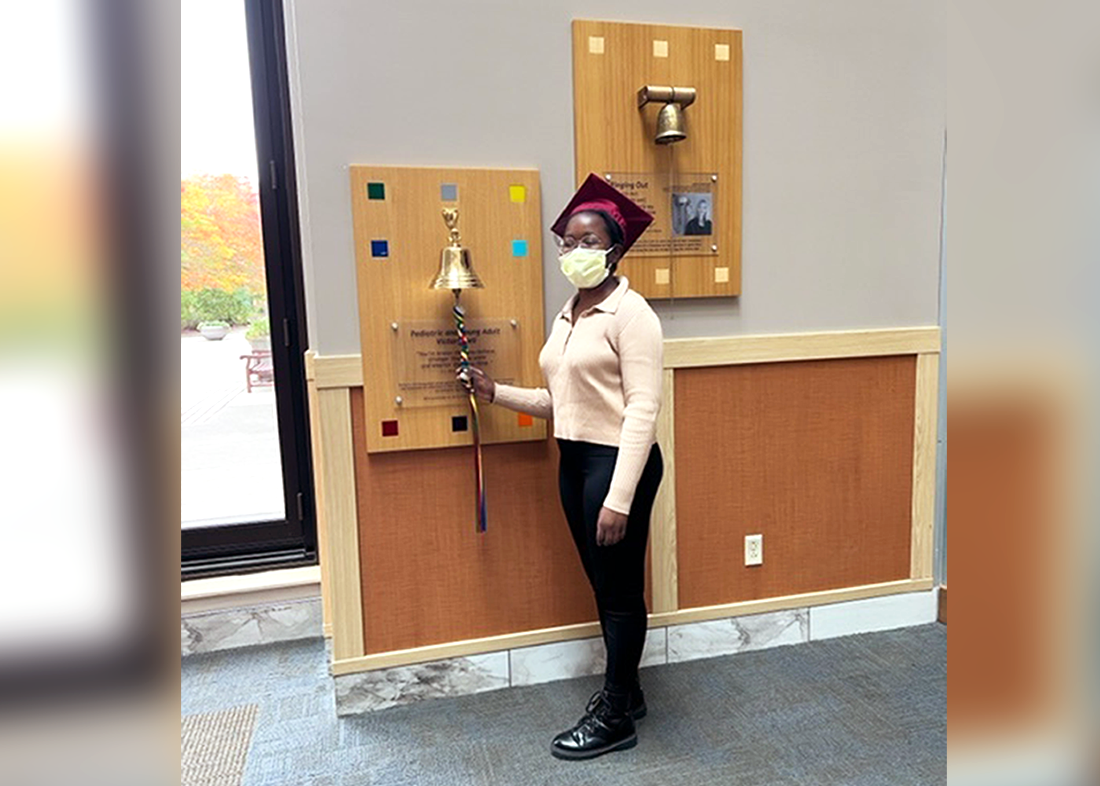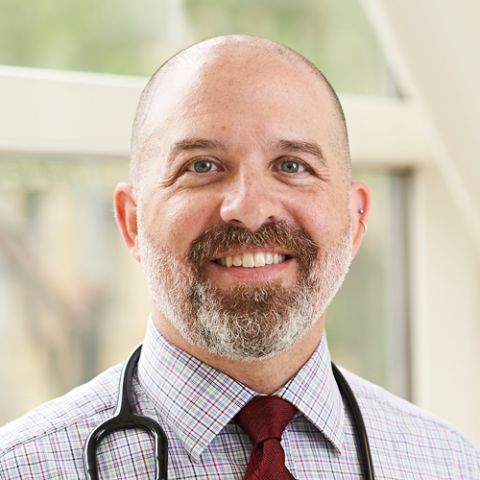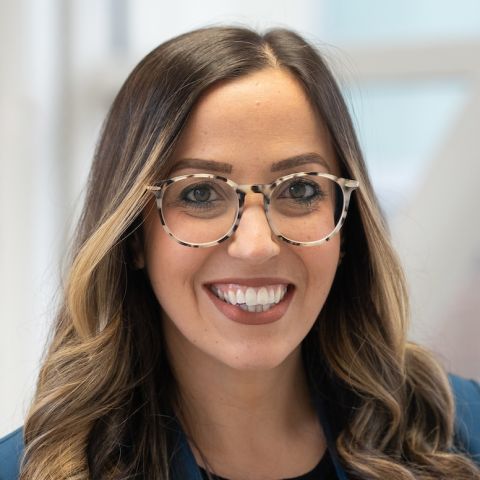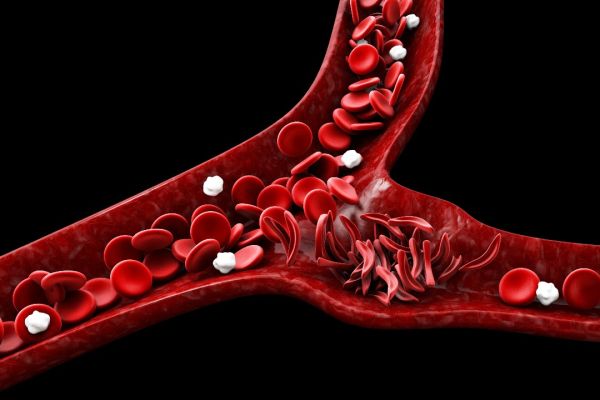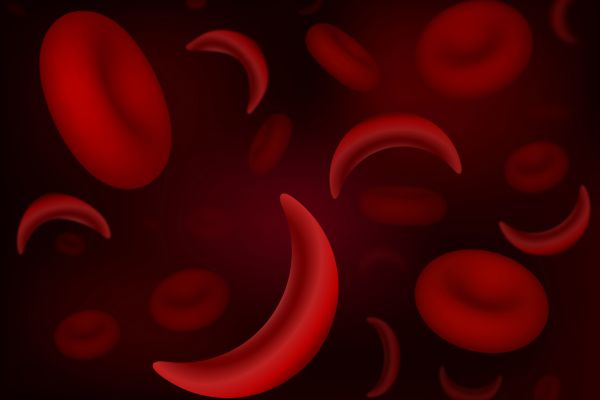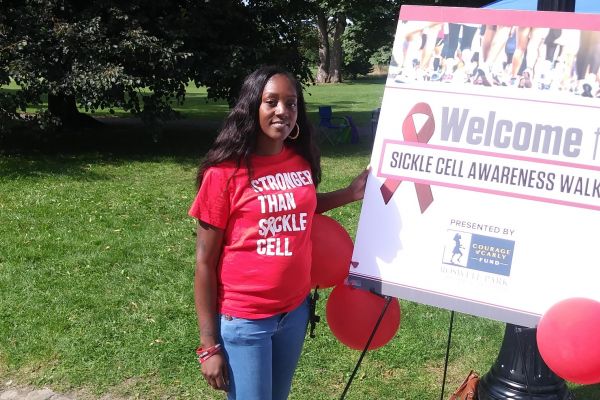In May 2022, 12 years after arriving in Buffalo via the Congo and a refugee camp in Zambia, 21-year-old Evodie Amina walked across a stage at the State University of New York at Buffalo to receive her bachelor’s degree in biological sciences. Six months later, she again donned a mortarboard cap and, surrounded by her care team, rang the Victory Bell at Roswell Park Comprehensive Cancer Center to celebrate her “graduation” into adult care from her pediatric care at the Roswell Park Oishei Children’s Cancer and Blood Disorders program.
The path to both milestones is a testament to the fortitude and faith of Evodie and her family, and to the care and commitment of Steven Ambrusko, MD, MS, Director of the Sickle Cell & Hemoglobinopathy Center of Western New York and his team at Roswell Park and Oishei Children’s Hospital.
What is sickle cell disease?
Sickle cell disease is one of the most common hereditary blood disorders in the world. It occurs in people who inherit abnormal hemoglobin genes that causes their red blood cells to form abnormally. Instead of round and flexible red blood cells, the cells become rigid, sticky and fragile, shaped like a banana or sickle. Early signs and symptoms may include painful swelling of the hands and feet, fatigue and jaundice. Diagnosis is confirmed by a simple blood test. Other than a bone marrow transplant, there is currently no cure for sickle cell disease, so patients need to be treated and monitored for their entire life. People with sickle cell disease are prone to painful “crises,” anemia, life-threatening infections, strokes and acute chest syndrome. Sickle cell disease occurs most commonly in people of African or Latino heritage, though it can also be seen in those of South Asian, Middle Eastern, and southern Mediterranean ethnicity.
From Africa to Buffalo
Evodie was born in the Democratic Republic of Congo in 2001 during what is sometimes called the African World War. “My mother said my birth was very bloody which was seen as a good omen for a healthy baby, but it turned out to be the opposite,” Evodie says. “As a baby, I was weak and lacked energy and stamina, and I ended up receiving a blood transfusion from my aunt when I was eight months old. In the United States and many other nations, all babies undergo newborn screening tests at birth, including a test for sickle cell disease. While sickle cell disease is common in the Congo, there was not routine screening where I was born, and the doctors didn’t know exactly what was wrong with me.”
At age 5, Evodie, her parents and seven siblings left the Congo to escape the war’s aftermath. “We lived in a refugee camp in Zambia for four years. I was still weak, and one of the doctors at the camp told my parents I might have some type of blood disease, but it was never confirmed, and I didn’t receive any treatment.”
That changed soon after Evodie and her family settled in Buffalo in 2010. “Catholic Charities sponsored my family and arranged housing, medical care and translation services for us. One of the first things I remember being surprised about in America was that there was hot water available in the showers. I wanted to stay under that hot water forever,” she laughs.
While undergoing medical evaluations and genetic testing, her family learned that neither parent had sickle cell disease, but they both carried the gene for it, called sickle cell trait and "I had sickle cell disease,” Evodie says.
That’s when Evodie and her family met Dr. Ambrusko, a pediatric hematologist/oncologist with a clinical focus on sickle cell disease. “The Sickle Cell & Hemoglobinopathy Center of Western New York at Roswell Park Oishei Children’s is the designated New York State Department of Health newborn screening referral center for Buffalo and the surrounding area. As the director of this center since 2007, I’ve cared for almost every child in Western New York with sickle cell disease, thalassemia and other types of hemoglobin disorders,” says Dr. Ambrusko. “Initially I did this at Women & Children’s Hospital of Buffalo (WCHOB), along with my pediatric hematology/oncology colleagues from WCHOB and Roswell Park’s Department of Pediatrics. This collaborative effort took a huge leap forward in 2017, when the newly named John R. Oishei Children’s Hospital relocated near Roswell Park’s main campus and UBMD Pediatrics in downtown Buffalo, facilitating the creation of our joint pediatric cancer and blood disorders program.”
A series of bridges connect Roswell Park’s and Oishei Children’s main buildings today, allowing pediatric patients, their families and medical personnel easy access between outpatient visits, chemotherapy, infusion treatments and radiation therapy at Roswell Park’s Gioia Pediatric Hematology Oncology Center, and inpatient care for surgeries, blood and marrow transplants, radiology services and critical care at Oishei. Both institutions offer specialized psychosocial services including child life specialists, social workers and pediatric mental health specialists.
“Additionally, because of Roswell Park’s focus on research and access to clinical trials, we can take advantage of many of the cutting-edge therapies developed and utilized there, such as CAR T-cell immunotherapy,” says Dr. Ambrusko. “In 2019, our joint team performed its first pediatric bone marrow transplant for a sickle cell disease patient.”
Treating children and their families
“In pediatric medicine, you not only care for children but for their families, too,” says Dr. Ambrusko, and that was literally the case with Evodie.
“I have been treated by Dr. Ambrusko for as long as I’ve lived in America until l graduated from the pediatric program last summer,” Evodie says. “When we first came here, my family and I spoke no English, just Swahili and French. Dr. Ambrusko and his team brought in translators to help me and my family understand sickle cell disease and how it would be treated. As our English got better, Dr. Ambrusko would always explain to me and my parents why I needed to take certain medications and then he would have me repeat his words back to make sure that I truly understood. I think that was one of my favorite things about him,” she says.
As the years went by, Evodie and her family, now comprised of nine siblings, thrived in Buffalo. “My dad’s congregation and the Congolese population grew, and my family did well in school.” Evodie humbly notes that she earned a perfect 4.0 grade point average in high school, and she and all of her older siblings graduated from college while her younger siblings are doing well in high school.
Why Roswell Park for pediatric cancers?
Find out more about how our joint program will give your child the tools needed to fight this battle.
Learn moreBut it has not always been easy. “It was hard to study for college in a crowded house and especially during the COVID shutdowns, sometimes I felt overwhelmed,” Evodie says. “Fortunately, I was able to work with Roswell Park’s Taryn Saracina, PsyD, MA, a medical psychologist, who counseled me and helped me navigate a lot of changes in my life.”
Among those changes was “aging out” of Roswell Park Oishei Children’s program. “Because sickle cell disease is a lifelong ailment, we want to make sure our patients get lifelong care,” says Dr. Ambrusko. “When our sickle cell patients turn 18, we introduce them to a trusted adult care internal medicine and pediatrics provider who we have worked with over the years, so they can become comfortable and feel safe with her while still being treated by us, and usually by age 21, their care is completely transitioned.”
“Moving to adult care was a little daunting at first but being able to see both doctors during the transition made it far less intimidating,” says Evodie.
A caregiver and a role model
Now graduated from both her college undergraduate work and the pediatric care program, Evodie is working towards her master’s degree in public health and plans to apply to medical school in the fall. “Dr. Ambrusko and his team inspired me while they cared for me, and I hope to care for patients that same way in the future,” she says. “I have nothing but praise for Dr. Ambrusko and his team!”
Editor’s Note: Cancer patient outcomes and experiences may vary, even for those with the same type of cancer. An individual patient’s story should not be used as a prediction of how another patient will respond to treatment. Roswell Park is transparent about the survival rates of our patients as compared to national standards, and provides this information, when available, within the cancer type sections of this website.
